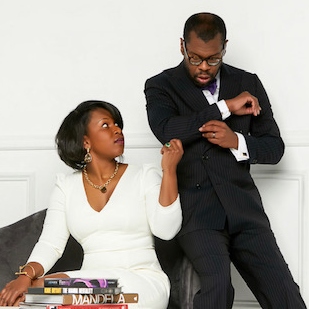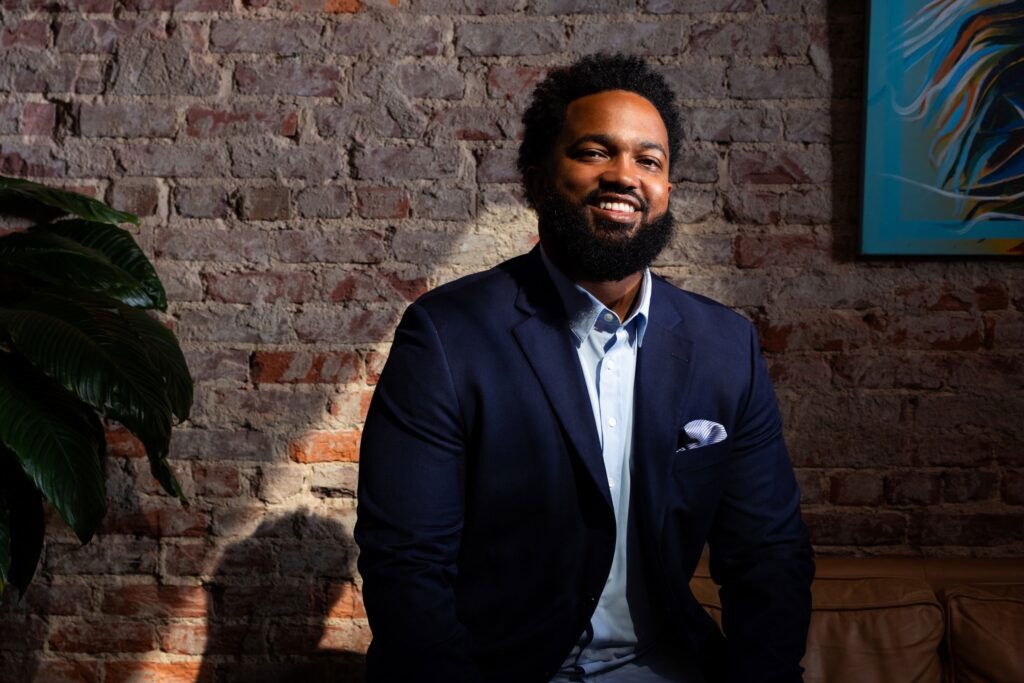Chasing justice: What is owed in the complex legacy of O.J. Simpson?
In the aftermath of O.J. Simpson’s death and controversial life, how can his legacy inform our own quests for redemption? […] The post Chasing justice: What is owed in the complex legacy of O.J. Simpson? appeared first on TheGrio.

In the aftermath of O.J. Simpson’s death and controversial life, how can his legacy inform our own quests for redemption?
“Notes on faith” is theGrio’s inspirational, interdenominational series featuring Black thought leaders across faiths.
Almost 30 years ago, the American public was unexpectedly riveted not by the scheduled 1994 NBA finals but by a real-life drama unfolding on their television screens. On June 17, 1994, Orenthal James “O.J.” Simpson, became the subject of a slow-moving police chase across Southern California’s freeways, in which Simpson was driven by close friend Al Cowlings in a now-infamous white Ford Bronco. He was charged in the brutal murders of his ex-wife, Nicole Brown Simpson, and her friend, Ronald Goldman, and wanted by authorities after failing to surrender.
The pursuit, captured by television cameras and broadcast live, drew an estimated 95 million viewers into a collective experience of anticipation and disbelief. As the Bronco inched its way under freeway overpasses, crowds gathered, some cheering on Simpson — a harrowing display of the complex interplay between celebrity culture, racial trauma, and the serious nature of the allegations against the former NFL star. The media spectacle that ensued became a societal zeitgeist, largely viewed in a bizarre television split screen juxtaposing the NBA Finals against the police chase. The subsequent criminal trial proved even more divisive and pivotal, forever changing the way the media covers high-profile cases. And yet, in the days following Simpson’s death from cancer on April 10, and nearly three decades after the murders that precipitated his fall from grace, as society continues to grapple with notions of guilt and innocence, there emerges a more poignant discussion on the broader implications of penance and reconciliation.
Once a celebrated sports hero affectionately known as “The Juice,” Simpson became the central figure in a surreal tableau that would mark the beginning of his transformation into one of the most polarizing figures in modern American history. The stark division in public opinion during Simpson’s trial was revived with his death, underscoring an enduring and even deeper societal rift — a rift not only about the man himself but also about how the larger systems of justice continue to intersect with race and celebrity status in America. Reflecting on Simpson’s recent passing and the controversies now surrounding not only his legacy but remaining estate and moral debts, the conversation now revolves around his unfinished business. Though Simpson stood trial and was acquitted of all criminal charges in 1995, in the intervening decades, many spectators remained troubled by a seeming lack of contrition or any sense of accountability when he publicly reflected on the deaths of Brown Simpson and Goldman, for which he was found liable in a 1997 civil trial. That monetary debt remained unpaid at his death.
Whether believers or disbelievers in his guilt, at the very least, the public that was drawn into this saga could have used some form of closure in which O.J. Simpson acknowledged that the nature of his relationship with Nicole Brown Simpson likely contributed to events that placed her in harm’s way. And what about their children? It could have been restorative to center the fact that, in the aftermath of the murders, two of Simpson’s children lost their mother and, to a lesser extent, their father. Their innocence was stolen as well.
Admittedly, deciphering Simpson’s narrative can be an emotional rollercoaster. When we reflect on the ways in which his legacy following his acquittal stirs frustration and unresolved feelings, what is undeniable is that his “second chance” was seemingly squandered. Neither his accusers nor his supporters got the closure we were looking for.
How do we lay to rest people with whom we have unfinished business? Can justice be found when there is no resolution? Against the backdrop of Simpson’s public persona and the legal battles that eventually eclipsed the accomplishments of his earlier life, highlighting the interplay between celebrity, race, and justice, his downfall also ushered in a complex dialogue about moral responsibility and personal redemption. It is worth considering the deeper, perhaps more personal aspects of atonement and the transformative power of engaging in acts that seek to heal and restore communities, regardless of a court’s verdict. This shift in focus from the external judgments of the court to the internal judgments of character and soul invites us to explore what true redemption might look like in the aftermath of life’s most tumultuous storms.
Such reflection becomes even more crucial when we consider how the sensationalism of Simpson’s trial dovetails with the advent of reality television and influencer cultures that are now ubiquitous. On a daily basis, we are inundated with breaking news, drawn into others’ conflicts to the point of desensitization. How does the practice of penance play into the broader discussion of moral responsibility and personal redemption, not only in headline-dominating cases like that of Simpson that we witness with increasing regularity these days, but in our own lives and communities? What does true redemption look like in the context of societal healing and restorative justice?
There are many who would posit that if one is not guilty, then there is nothing to address — and to some extent, that is true. However, accountability remains in caring that a broken community is made whole, particularly when one is in a position of power that can relieve the anguish of harmed parties by engaging in forms of penance, a character trait we do not discuss enough. Doing penance is a sign of maturity and humility in the face of wrongdoing; they are actions stemming from religious practices that demonstrate remorse for something one has done or has been involved in. At the same time, while most of us will never be charged or even suspected of murder, each one of us can relate to experiencing misunderstanding or fault being assigned within our lives where only God can be the judge — period.
If that is true, what do we offer as testimony?
Giving an account to the Creator was signified when our ancestors would speak about the “Book of Life,” a reference symbolizing a record of the acts and deeds a soul is responsible for doing while inhabiting a human body. In the Christian sacred text typically referred to as the New Testament of the Bible, the “Book of Life” speaks to names registered for those who will inherit eternal life.
Even as our names are written in the celestial Book of Life, all must be held to account according to their deeds in this life and after. For every action, there is an equal and opposite reaction. One’s desire should be that each day, we improve how we live our lives in hopes that whoever comes after us will be able to build a greater legacy because we lived.
Within the context of the African-American experience of centuries-long liberation and struggle, the “Book of Life” has a deeper significance, in that there is a desire to be freed from the complexities of who we are and the struggles we endure. Our ancestors spoke of both the Book of Life and angelic advocacy in the deeply Black-rooted spiritual, “The Angels in Heaven Done Signed My Name.” We might imagine Simpson himself hearing this song through his mother Eunice, who was reportedly deeply rooted in her Christian faith and a noted musician who played hymns and spirituals on countless Sundays. As the hymn reminds us, there are always invitations to be contrite and held accountable. What does restorative justice look like?
Can you imagine what it is to have your name written by the angels, recognized by the Divine Creator in spite of who you are or what you may have done? We all have power we can wield in the name of love to bring resolution in our spheres of influence. As Rev. Dr. Martin Luther King, Jr. once posited, “Power at its best is love implementing the demands of justice, and justice at its best is power correcting everything that stands against love.” We sense that when all is considered, especially from the point of view of those who are harmed, the Divine Creator, who is love, is correcting it all out for the justice of all.
At the end of the day, it matters most what the Source knows of you. Putting it another way, Minister Louis Farrakhan reminds us that though we are directly descended from the Divine as each of us has our righteous nature buried beneath the unique circumstances of our lives. As people of faith, whatever our faith, we are urged to look beyond one’s faults to meet them in their need.
In the circumstances of a life and legacy that have beaten and battered us, the angels in heaven done signed our name.
Through the turmoil and snares of life, the angels in heaven done signed our name.
However the world perceives you while you strive to be better and do better, the angels in heaven done signed your name.
Our prayer is:
May we grow in awareness and do no harm.
And that whenever there is wrongdoing, may we have the strength to contribute to making our communities whole when we are able.
May we hold space for others in a way that brings peace.
And even when we cannot obtain peace together, may we reverence each other’s journey with every positive and well wish.

Rev. Dr. Alisha Lola Jones is a faith leader helping people to find their groove in a fast-paced world, as a consultant for various arts and faith organizations and professor of music in contemporary societies at the University of Cambridge in Cambridge, England. She is an award-winning author of Flaming? The Peculiar Theopolitics of Fire and Desire in Black Male Gospel Performance (Oxford University Press). For more information, please visit DrAlisha.com.
Rev. Calvin Taylor Skinner is dedicated to empowering frontline communities in Knoxville, Tenn. and the United Kingdom. He uses faith and policy to address energy justice, criminal justice reform, voter education/mobilization, electoral politics, and global affairs. Along with his wife, Rev. Dr. Alisha Lola Jones, they lead InSight Initiative, a consulting firm focusing on capacity building and live events production.
Recommended Stories
- OJ Simpson, fallen football hero acquitted of murder in ‘trial of the century,’ dies at 76
- How O.J. Simpson burned the Ford Bronco into America’s collective memory
- O.J. Simpson’s lawyer deflects query about possible deathbed confession, says client’s health declined within a week
- Executor of O.J. Simpson’s estate plans to fight payout to Brown, Goldman families
- The whitewashing of O.J. Simpson
- O.J. Simpson epitomized ‘two Americas,’ but he denied reality … until his historic trial
- O.J. Simpson trial paved way for ‘Keeping Up With the Kardashians,’ TMZ and lots of questions about race
- Learn more about O.J. Simpson: The TV, movies, books and podcasts about the trial of the century
The post Chasing justice: What is owed in the complex legacy of O.J. Simpson? appeared first on TheGrio.












